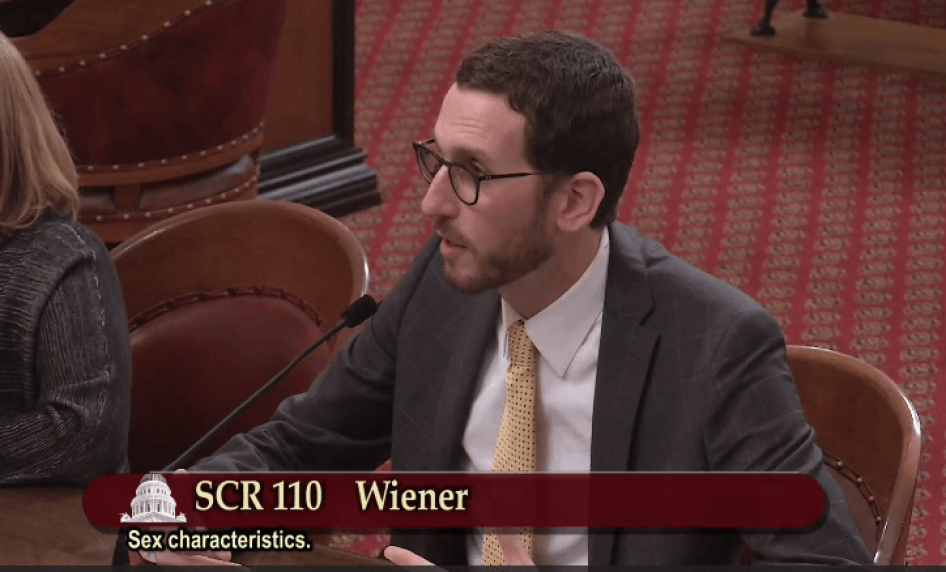(Los Angeles) – California’s legislature passed a resolution on August 28, 2018 that supports the autonomy of intersex people and their right to decide about cosmetic surgical alteration.
Senate Concurrent Resolution 110 (SCR110), introduced by Senator Scott Wiener and co-sponsored by interACT Advocates for Intersex Youth and Equality California, is the first successful move by any state legislature in the United States to call on the medical community to establish standards of care for intersex children that take into account their human rights. The resolution urges health professionals to foster the well-being of children born with variations of sex characteristics, and the adults they will become, with individualized, multidisciplinary care that respects patients’ rights to participate in decisions, defers medical or surgical intervention, as warranted, until the child is able to participate in decision making, and promotes patient and family well-being.
“SCR110 signals the state’s respect for people born with variations in their sex characteristics,” said Kyle Knight, researcher at Human Rights Watch and author of two reports on intersex issues. “This resolution calls on medical professional associations to honestly examine medical evidence and ethics and develop care standards that treat intersex people with the same respect as other patients.”
As many as 1.7 percent of babies are born with atypical chromosomes, gonads, or internal, or external sex organs. Most are born perfectly healthy. Since the 1960s, doctors in the US and elsewhere have routinely performed surgery to “normalize” their bodies, long before they are old enough to decide for themselves whether they want these procedures.
Certain surgery on some children with intersex traits is undisputedly medically necessary, such as when urine cannot exit the body. But some surgeons perform risky cosmetic surgery on intersex children, such as clitoral reduction procedures or vaginoplasties, claiming – without evidence – that the procedure will help the child fit into society. The surgery is medically unnecessary, irreversible, often traumatizing, and carries a risk of lifelong harm.
Medically unnecessary surgery on intersex children has been condemned by the World Health Organization, three former US surgeons-general, Physicians for Human Rights, the AIS-DSD Support Group, Amnesty International, United Nations experts, Lambda Legal, the ACLU, two pediatrics professional bodies, and intersex-led organizations worldwide. SCR110 also received support from the Children's Advocacy Institute, the American Medical Students Association, The Trevor Project, PFLAG (an organization for parents of LGBT youth), the ACLU of California, GLMA: Health Professionals for LGBT Equality, and the National Center for Lesbian Rights.
Patient advocates have worked with the medical community for 25 years to develop standards of care for intersex people – but medical professional associations, despite decades of debate and some dissenting physician voices, have by and large failed to regulate the practice. To fill this gap, Lambda Legal and interACT published an intersex-affirming hospital policy guide.
“California’s leadership on the protection of intersex children’s rights is not only an expression of solidarity and dignity, but a reminder that doctors take an oath to do no harm,” Knight said. “Medical professional associations should draw a hard line saying that unless surgery is medically necessary, intersex children have the right to grow up and participate in the decision to undergo surgical procedures.”







